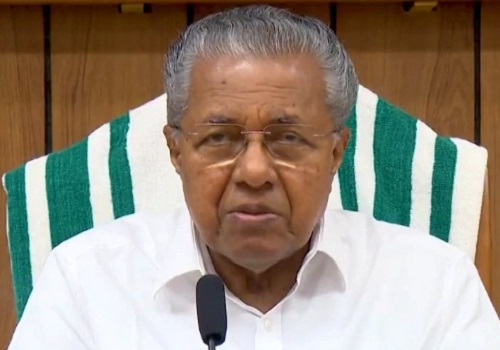How Much of Your Income Should be Saved?

How Much of Your Income Should be Saved?
Is it essential to save? Of course, it is! Saving is a by-product of better finances; without it, everyone would be insolvent or bankrupt. Unfortunately, there are times when our expenditure exceeds the income - and it would not be possible to save.
But that would not always be the case, right? Do you know when the major question would arise? When you start saving, the question is, "how much should I save?" Of course, this is a relative and subjective question to answer - but there are certain ways you can find how much you need to save from your income for a better financial future.
How Much to Save from Your Income
At the end of the month, we all enjoy the lovely sound of SMS alerts. How much of that beauty, however, do we save for ourselves? In other terms, how do you distribute your bread (income)?
Every earning individual should follow the 50:30:20 rule in their financial planning. This is critical, especially for breadwinners. Implementing this regulation will ensure that they have a bright future. The 50:30:20 guideline states that 50% of your income should be spent on necessities, 30% on wants, and the rest of the 20% on emergency savings.
Needs or necessities are those things without which you cannot go about your regular life. These include things like groceries, house rent or EMI, utilities, and so on. Needs can never be compromised, and you have no choice but to spend money on them.
Wants are things that aren't strictly necessary, yet you use them to make your life better. Gym memberships, vacations, movie tickets, subscriptions to online streaming services, and so on are a few examples. Anyone should try to restrict their expenditure on wants as much as feasible.
The remaining 20% of your income should be saved to create an emergency fund that is at least three times your monthly payment. After that, you can begin investing. As a result, your mutual fund investments should equal 20% of your monthly payments. If you can reduce your spending on wants, you can use that money to increase your mutual fund investment.
Also, in the run of this - do not forget the factor of investing. Also, the best part is that you do not have to wander about where to invest money in India - there are many choices for that today.
Let's look at this rule a little more in detail:
1) 50%
The first 50% is known as the "necessity bucket." This means that you should allocate 50% of your monthly income for basics like food, shelter, clothing, and transportation; in other words, items you can't live without. Are you familiar with Maslow's hierarchy of needs? Your financial budget is considered unsatisfactory if you spend more than 50% of your monthly take-home pay on the above.
2) 20%
The second 20% is referred to as the "financial priority bucket." This means that 20% of your monthly take-home pay should be set aside for long-term savings and debt repayment if you have any.
3) 30%
The third 30% is referred to as the "lifestyle choices bucket." This means you shouldn't spend more than 30% of your salary on things like entertainment, travel, the gym, cell phone recharge, and cable TV. Remember that the majority of these products are nice-to-haves rather than necessities. You can live without them; nevertheless, your life will be less glamorous.
Why Should People Save Money?
Well, if you are someone with the philosophy of dying someday, then this is a must-read. Here are some reasons that point out at why you should save money:
- Saving money provides financial security, and having money makes life easier. Any money saved or invested somewhere with high returns and low-risk elements can assist develop a stress-free life. Most people save money for retirement and to be financially comfortable during those times.
- Saving can bring financial independence. When one has money saved up, one does not need to be financially dependent on others. It is also vital to save money for emergencies and unforeseen expenses. Saving allows for greater freedom in life choices; financial goals can be easily attained. This flexibility can be obtained by setting aside a specified amount each month.
- One should seek to save 15% of one's pay for retirement or start with a small and reasonable percentage and gradually increase it by 1% each year until one reaches a sufficient proportion. The best approach to saving for retirement is to set up automatic monthly transfers from your checking account to your savings account.
- Since emergencies are unpredictable, having an emergency fund can come in handy. An emergency fund is money placed in a savings account specifically for unexpected emergencies such as car accidents, sudden illnesses, etc. Consider opening an online savings account to make emergency funds accessible and accessible.
- Saving and investing to achieve financial freedom as soon as possible is heavily influenced by the lifestyle you maintain. It is critical to understand that lifestyle inflation is difficult to reverse. It has a ratcheting action. This is known as - the relative income hypothesis by renowned economists.
Simply put, when income falls, most people do not lower their consumption proportionally to compensate. Instead, people try to protect their living standards by either devouring their previous savings or borrowing. All of this comes at a price. Don't always think of money as a method to acquire things; rather, think of money as a way to achieve financial freedom.
Final Words
Based on several factors - how much you need to save would change. It could be a lot of fun to spend all of the money you earn, but that is not the wisest of all choices. Obviously, human wants are unlimited - but you can always make up a way to save. The major part is that you need to know how much to save.
Above views are of the author and not of the website kindly read disclaimer




















